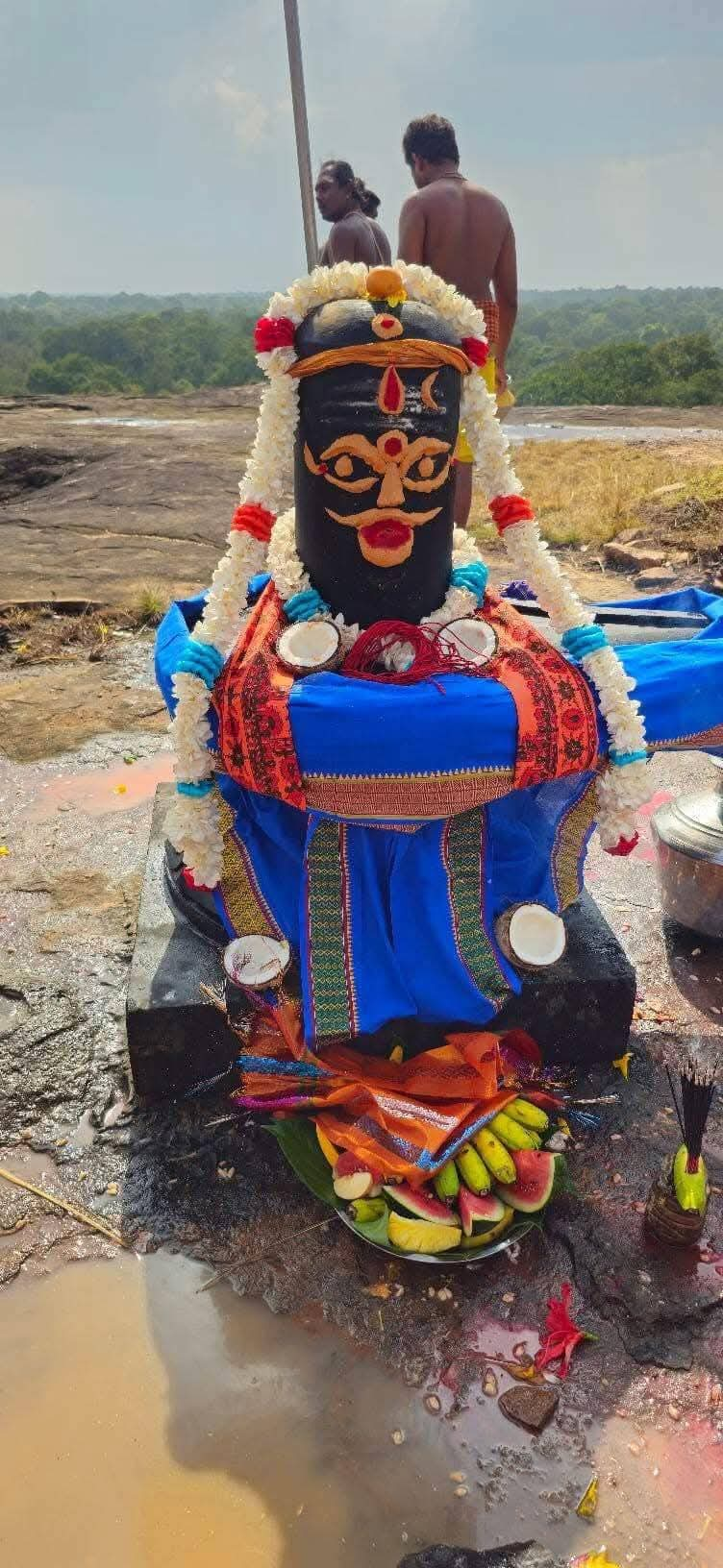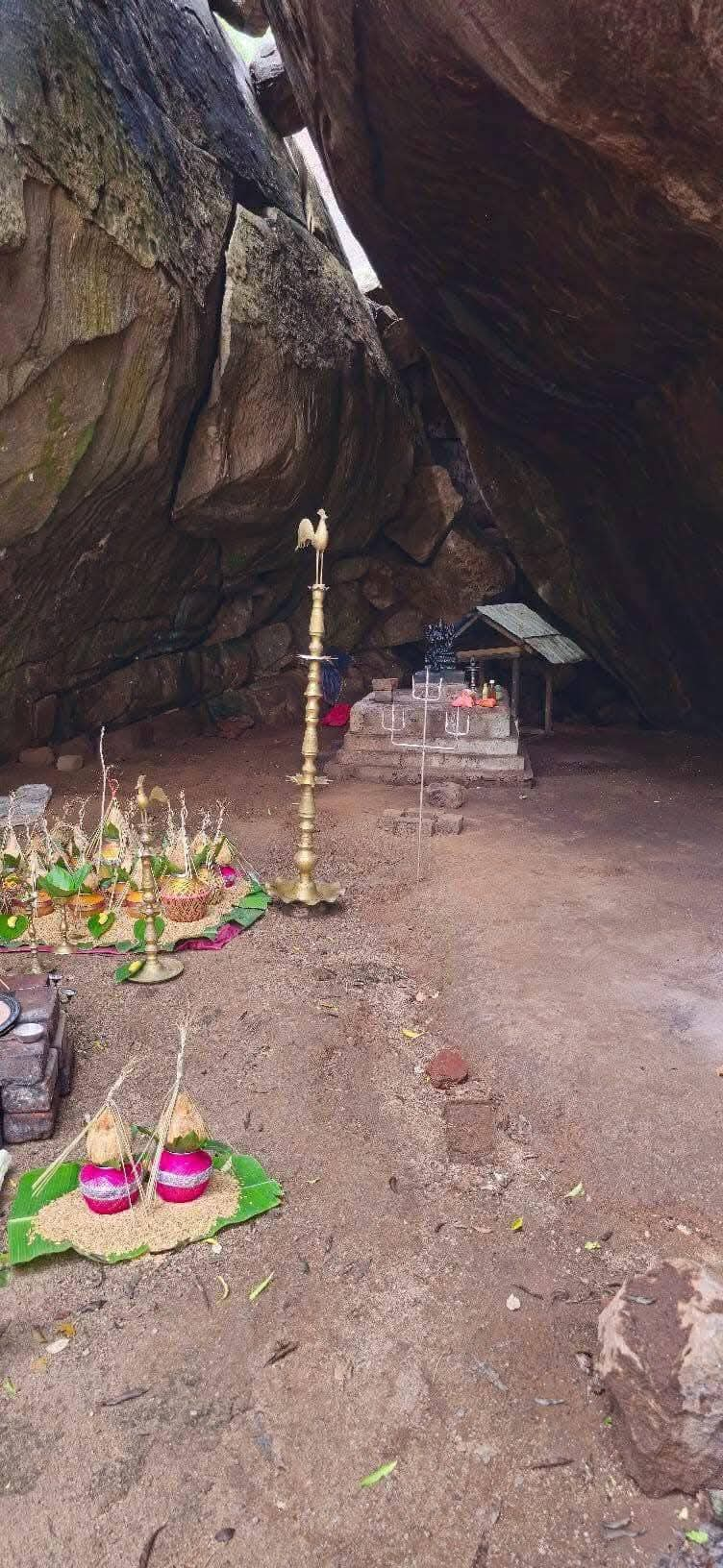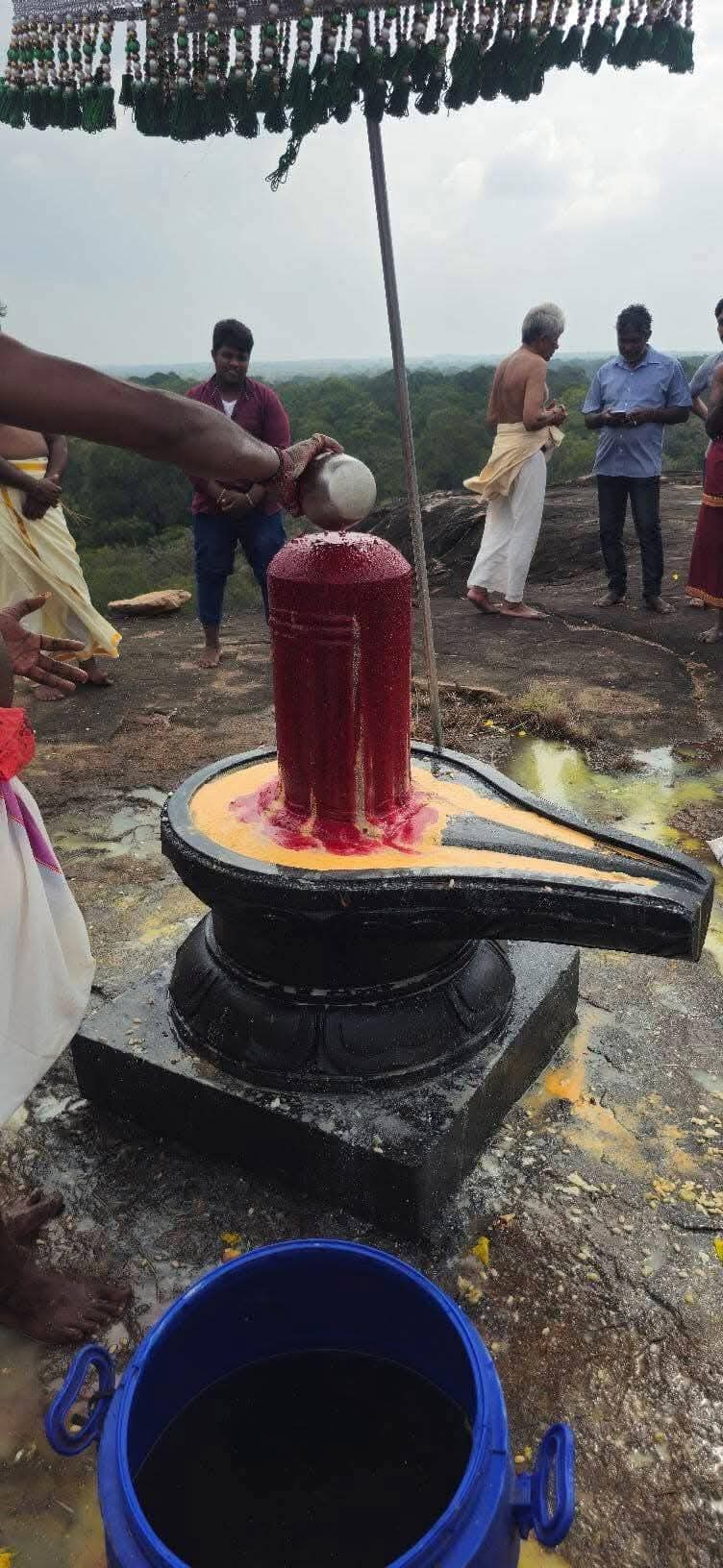
Tamil worshippers at the Adilingeswarar Temple on Vedukkunari Hill have condemned the latest restrictions imposed by Sri Lankan authorities, which curtailed the annual Shivaratri observance to just five hours.
The temple, which has been a place of Hindu worship for centuries, has increasingly come under Sri Lankan state-imposed restrictions, limiting Tamil religious practices. Shivaratri, one of the most sacred Hindu observances, is traditionally an all-night vigil dedicated to Lord Shiva, but this year’s ceremony was forcibly shortened, effectively reducing it to what activist S. Thavapalan described as a mere "Shivan Day."
No police or government department has the authority to dictate Tamils’ right to worship, Thavapalan asserted stating thar right belongs solely to the people following the ritual observances.
He also warned that some within the Tamil people had become complicit in these restrictions, undermining their own religious freedoms.
“The struggle is not merely against the police or government agencies; we are also fighting against those who, through deception, seek to undermine this sacred hill,” he added.
The Adilingeswarar Temple has been at the centre of an ongoing struggle, with Sri Lankan authorities continuing to obstruct Hindu worship under the pretext of archaeological conservation. Last year, eight worshippers were arrested for attempting to observe Shivaratri overnight after authorities ordered them to stay away. They were unjustly detained for 13 days, triggering widespread protests.
In response to last year’s repression, Sri Lankan police summoned temple priest Mathimukarasa for questioning ahead of this year’s Shivaratri, warning him that ceremonies could only take place during daylight hours.
The authorities insist that the historic shrine is the property of the Department of Antiquities, using this claim to enforce severe restrictions on Tamil worship. As a result, this year’s Shivaratri ceremonies were forced to conclude by 6 PM, after which devotees had to move to an alternative site.
The ongoing state-backed restrictions on Tamil religious practices, particularly at historically significant sites, highlight the broader pattern of Sri Lanka’s systemic erasure of Tamil heritage and identity.



